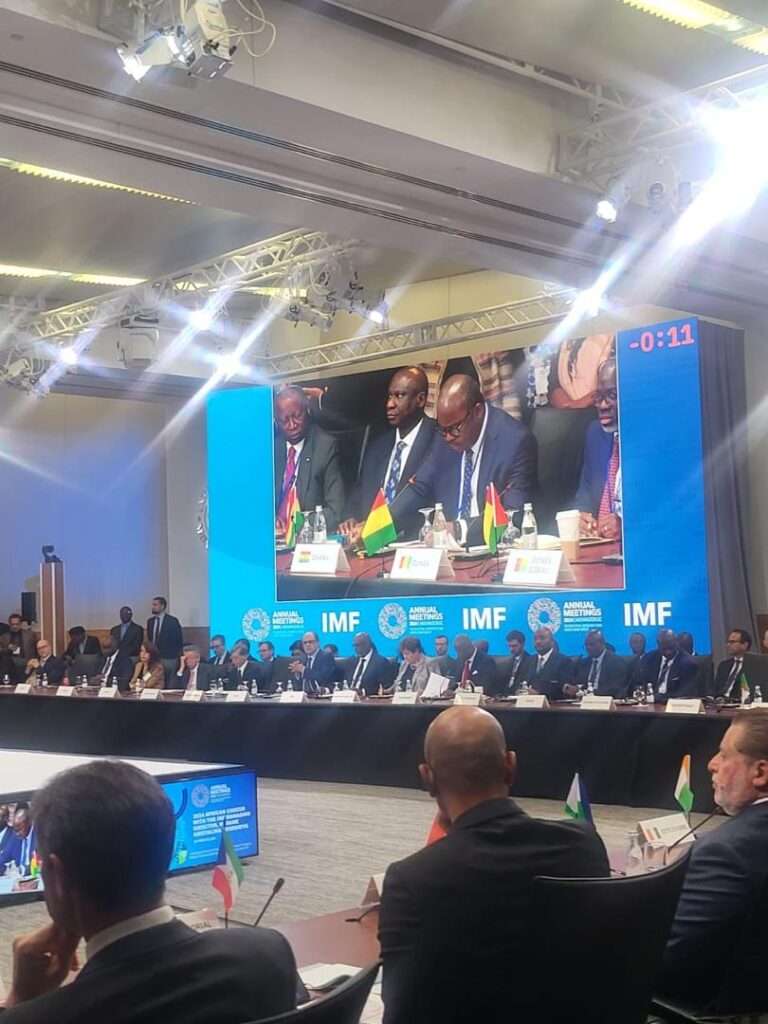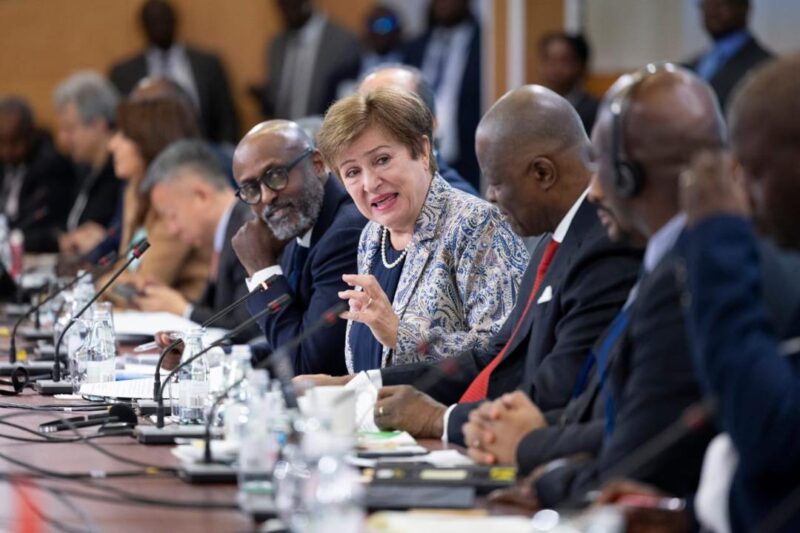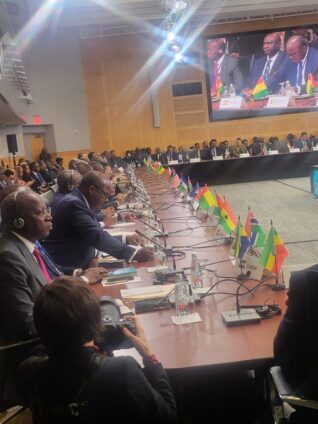The Governor of the Bank of Ghana, Dr. Ernest Addison, is urging the International Monetary Fund to continue to lead in debt restructuring and relief efforts for heavily indebted countries such as Ghana.
In this respect, he wants the Global Sovereign Debt Roundtable (GSDR) to ensure swift, fair, and effective debt resolution under or outside the G20 Common Framework, focusing on providing timely debt relief for the most vulnerable countries.
Speaking at the 2024 Africa Caucus Meeting with the Managing Director of the International Monetary Fund, Kristalina Georgieva, in Washington, DC, Dr, Addison also called for greater private sector involvement in the Common Framework to ensure Comparability of Treatment and faster progress on debt resolution initiatives.
“The Fund, through the GSDR, should also explore innovative financing solutions—such as blended finance, and debt-for-climate swaps via enhanced RSF—to address both the continent’s debt vulnerabilities and climate change risks, he added.

Dr. Addison also called for a collaborative approach to address Africa’s fiscal challenges, which he described as crucial.
“We urge the IMF and World Bank to coordinate their support to develop resilient fiscal policies, considering Africa’s diverse needs. Programmes should account for regional specificities to ensure sustainable and impactful reforms that do not disproportionately affect vulnerable populations. The IMF should leverage its catalytic role and convening power to deepen dialogue with regional MDBs [Multilateral Development Banks] for additional concessional finance and grants, aiding debt restructuring for members at high risk of debt distress”.
He also wants the IMF’s support to remain flexible, adapting to global conditions and country-specific needs, while ensuring sufficient resources.

In this context, the BoG Governor said maintaining the high concessionality of the Poverty Reduction and Growth Trust is critical while ensuring adequate financing through all possible options, such as gold sales.
“In this regard, it is crucial to highlight that the timing for the resumption of charging interest rates on PRGT funds (tiered interest rate structure) is inappropriate as most PRGT-eligible countries are still facing significant challenges. Relatedly, the IMF’s charges and the surcharges policy should avoid adding financial burdens on countries facing fiscal challenges”, he explained.
“With the expiry of the Food Shock Window and rising food insecurity, especially in Africa, timely emergency financing through CCRT resources and program augmentations is essential. Intensified fundraising efforts under the second phase of resource mobilisation are paramount”, he added.
Latest Stories
-
64% of CEOs in Ghana optimistic firms will thrive beyond next decade if… – PwC Report
7 seconds -
NPP vs. EC: A Dance of Convenience?
6 minutes -
Gold Stars announce Appiah McCarthy, Roland Frimpong contract extensions
10 minutes -
Abuakwa South MP mourns the passing of Ernest Kumi
19 minutes -
It’s not too late; let’s work together to fix the broken EC – Omane Boamah to NPP
28 minutes -
You should’ve listened when we raised red flags about the EC – Omane Boamah to NPP
41 minutes -
Hassan Ayariga opposes alleged attempt to establish Nigerian kingdom in Ghana
42 minutes -
Ablekuma North: Are EC leaders trying to save their jobs because NDC threatens to remove them? – Nana B asks
55 minutes -
Today’s Front pages: Wednesday, July 9, 2025
1 hour -
NPP questions EC and police role in Ablekuma North election
1 hour -
Construction of 24-Hour-Economy market starts soon on Jema-Kintampo highway
1 hour -
‘It’s collation, not rerun’ – Justin Kodua fires at EC over Ablekuma North dispute
2 hours -
NPP drags EC to court for contempt in Ablekuma North dispute
3 hours -
Musk’s AI firm says it’s removing ‘inappropriate’ chatbot posts
3 hours -
We have done our part in preserving cedi’s true value – BoG Governor
4 hours

